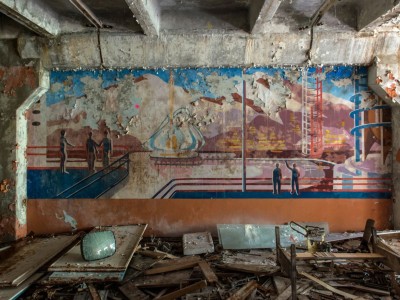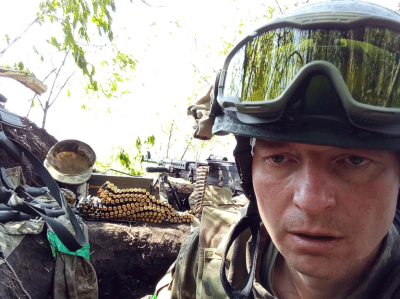In September 2022, seven months after Russia invaded Ukraine, I enrolled in a doctoral degree programme at the National Academy of Educational Sciences in Kyiv. Like most Ukrainians, I assumed that the war would end in a few more months. But this week marked the second anniversary of the invasion. For two years now, Ukrainians have lived through power cuts and air-raid alerts. The academic year has had to stretch into the summer, when heating costs are lower. Despite these challenges, education and research have managed to keep going. And we’ve learnt a great deal about how to adapt our universities to constantly changing circumstances.
As well as being a student, I am a senior lecturer at the Kyiv National University of Technologies and Design. Using a combination of online and offline methods, I teach English to more than 100 undergraduate students. Our interactions feed into my doctoral dissertation, which is on the use of gamification — incorporating game-like elements to increase participation — to motivate students and individualize the learning process.
Ukraine is a live laboratory for testing innovations in education. Each student faces a different set of challenges. Some are not always able to attend in-person classes; many cannot fit a regular academic schedule into their lives. My classroom has become hyper-individualized as I try to cater to the differing needs of each student.
Scientists in Ukraine have long fought for scientific freedom
Oleh, for instance (students’ names have been changed for privacy), arrived in Kyiv from his home town only at the tail end of the autumn semester, so he had to catch up on all the class material he’d missed. His parents were anxious about letting him move to the city after an intense spell of missile strikes on Kyiv during the summer. Another student, Ivan, has moved to Finland — he is among the estimated 650,000 men who have left Ukraine to escape the war. Owing to language barriers in their host countries, many exiled students continue to take classes at Ukrainian universities. Ivan sends me videos of his diction and pronunciation using messaging apps such as Telegram and Viber.
Self-learning is another skill each student must develop. I regularly use gamified platforms such as Quizlet and Kahoot, which allow students to work on assignments at different times and at their own pace. I’ve created pods of students on these platforms and assigned them specific tasks. Working in a group environment online gives students a sense of a cohesive classroom, because they can compare their performance with that of their peers on the leader board. We also engage in real-time collaborative play on Quizlet Live, which lets students showcase their language skills. Students collaborate in teams to achieve shared goals and compete against other teams.
Ukraine’s academic adaptations are relevant to the world because learning apps and educational technology platforms have made big inroads globally in the aftermath of the COVID-19 pandemic. Serious research is needed into what works and what doesn’t. Ukrainian academics, including me, are trying to systematically study the effects of online education and a stressful environment on the quality of learning. We deserve support and offers of collaboration from institutions abroad.
Research spending in Ukraine was in decline before the war, dropping from 0.7% of gross domestic product in 2011 to 0.3% in 2021, according to the World Bank. The war has stretched public finances even further. But it is important to sustain research and academic work even during conflict.
‘In case I die, I need to publish this paper’: scientist who left the lab to fight in Ukraine
Education can switch one’s attention away from anxiety and stress. Educational institutions offer a semblance of normalcy. They are spaces where young Ukrainians can engage with their peers in a safe environment. And students are very happy to be in a classroom.
Take Katia, a fourth-year undergraduate in my class, originally from Avdiivka — a city that fell to the Russians this month. Katia lost her home and had to move to Kyiv with her mother. To help pay the rent, she has been juggling her university classes with a part-time job for a delivery company. Although she misses classes occasionally, she is unwilling to give up on education. Other students in my class have had to deal with the death of a close family member or extended periods of separation from their parents.
Compared to their struggles, the difficulties I encounter as a doctoral student are modest. Because of the threat of power cuts, my house has a car battery rigged up as an emergency power source for the Internet router and the phones. In Kyiv, we have invented shorthand vocabulary to discuss the severity of air strikes. Prylit, which means arrival, is a way to say that a missile has evaded the air-defence system and reached its target. When this happens, we evacuate to a shelter. Otherwise, I stay at home and focus on my dissertation.
Ukraine’s experience over the past two years provides a template for how to organize teaching and learning in the middle of a war. We have shown that education is possible in any situation. Although there seems to be no end in sight for the war, I have faith in the future. Many young people who have chosen to stay in Ukraine during this difficult period are so incredibly smart. Their brilliance is hard to miss in classroom discussions. I hope the world will invest in them and their future.
Competing Interests
The author declares no competing interests.





